Year of Climate Action
In support of Singapore’s Year of Climate Action, NUS pledged to encourage 11,000 students staying in our 15 residences on campus to save energy by switching off unused appliances and using fans instead of air-conditioning; save water by taking shorter showers and running washing machines on full load; and reduce waste by recycling food waste and passing used items to incoming residents.
Various awareness and outreach activities were also organised.
NUS Climate Action Month
To kick-off our climate action activities for the year, the NUS Climate Action Month was held in March 2018. It consisted of various activities targeting different audiences in NUS.
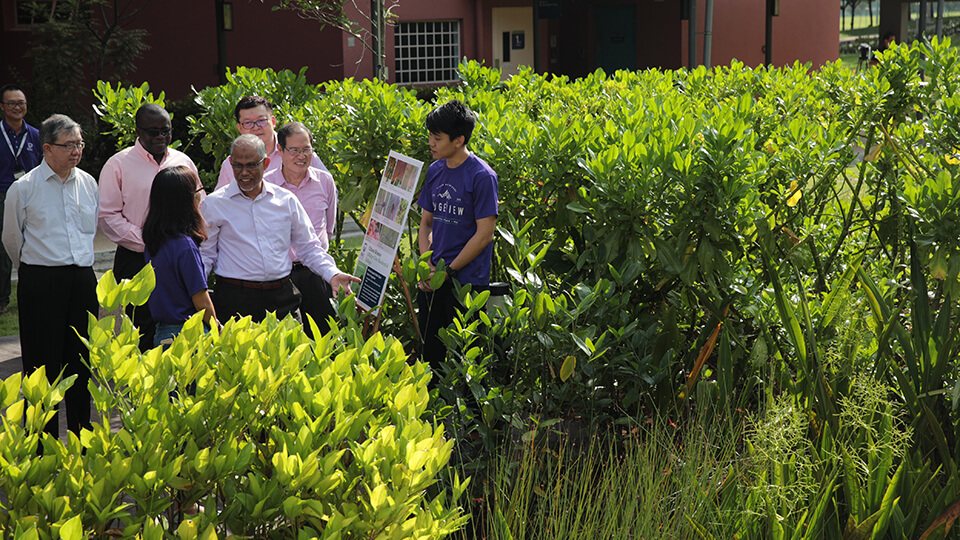
- Singapore World Water Day @ NUS
- Earth Hour ‘Superhero’ Contest
- Screening of ‘A Plastic Ocean’
- Symposium on Futures Sustainability
Read more about the NUS Climate Action Month here.
Climate Change Negotiation Training Workshop
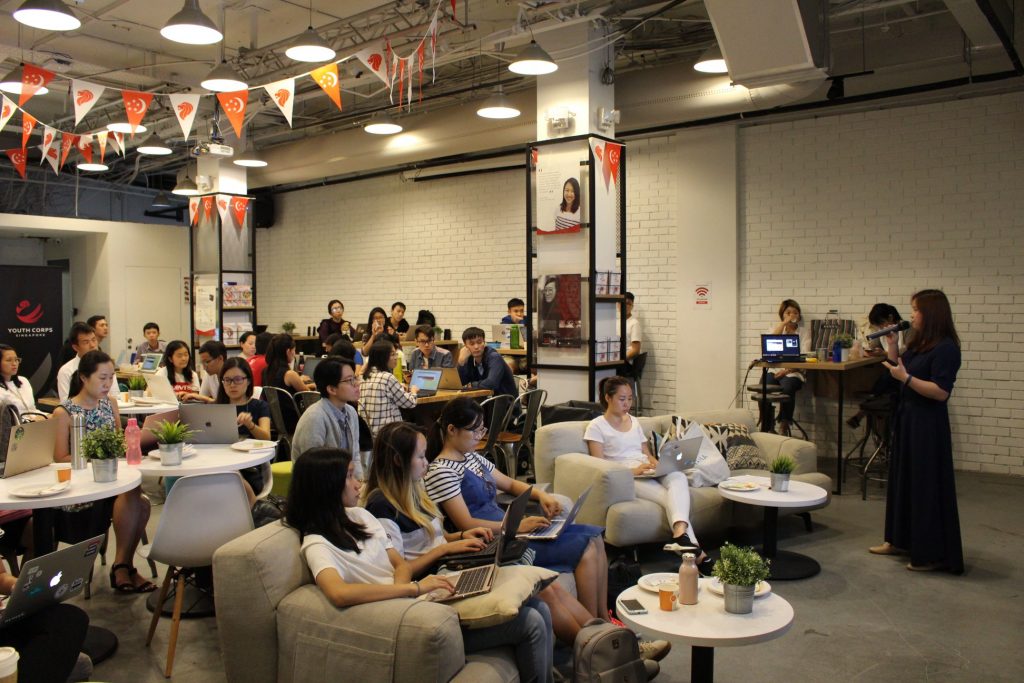
Thirty-five youths under the age of 35 participated in a six-week Climate Change Negotiations Training Workshop from August 2018 co-led by NUS Energy Studies Institute, National Youth Council and other partners.
The aim was to help youths gain a better understanding of the complex climate change negotiations under the United Nations Framework Convention on Climate Change (UNFCCC) and how countries are responding, as well as empower youths to act on climate change and promote awareness among their peers. At the concluding session, participants took turns to deliver “elevator pitch” presentations on what they have learnt, and their present and future plans.
Environmental Roadshows
Several environmental roadshows was held throughout the year to raise awareness of climate change issues within the NUS community.
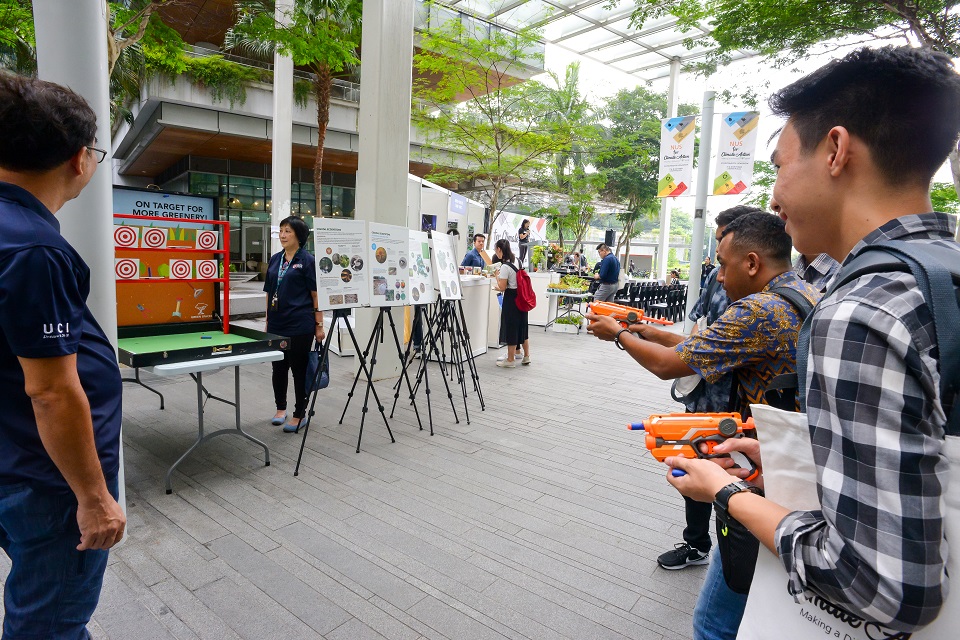
The NUS for Climate Action Environmental Roadshow took place in October 2018 with a series of movie screening, competitions and talks on making NUS a greener, sustainable campus as well as addressing climate change. It culminated in a two-day event featuring exhibition booths on thematic areas of energy, water, waste minimization and recycling, and green buildings and spaces. Besides showcasing NUS’ current operational and test-bedding efforts in enhancing sustainability on campus, the iReject campaign to drastically cut down on plastic disposables use starting with straws was also launched.
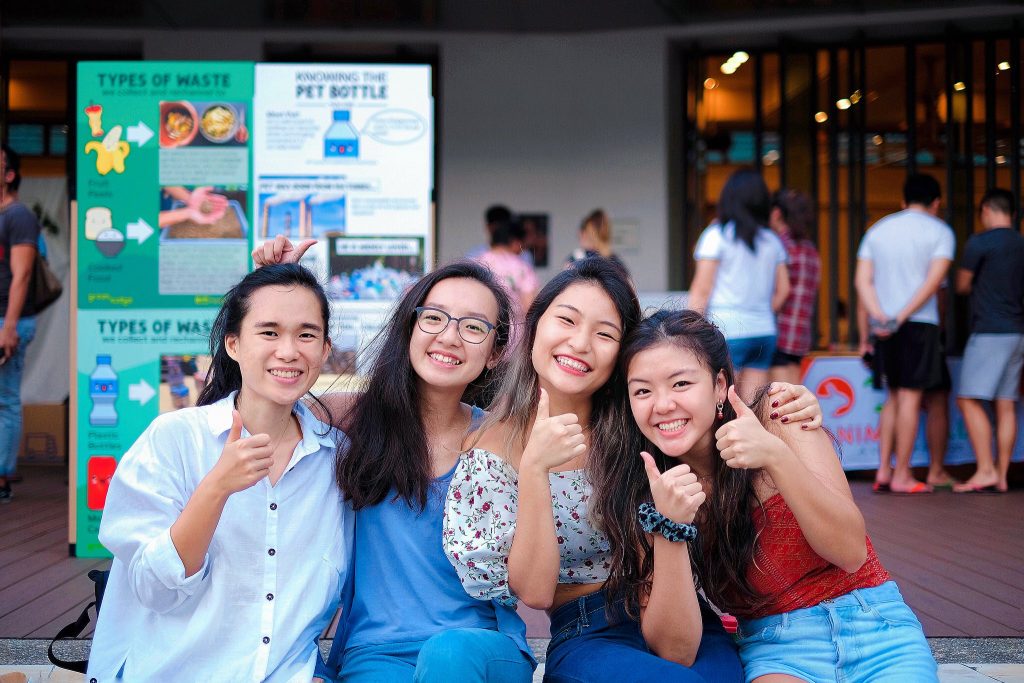
Eco-Fest, held in January 2019 at NUS UTown, was initiated by four students and alumna from NUS and Yale-NUS College. The two-evening Eco-Fest at University Town showcased sharing sessions by environmental thought leaders, social entrepreneurs and nature photographer, as well as exhibition booths relating to sustainable lifestyles and climate change. The NUS community had a chance to play land-use simulation games, do book swaps with others, learn about the circular economy and try vegan snacks.
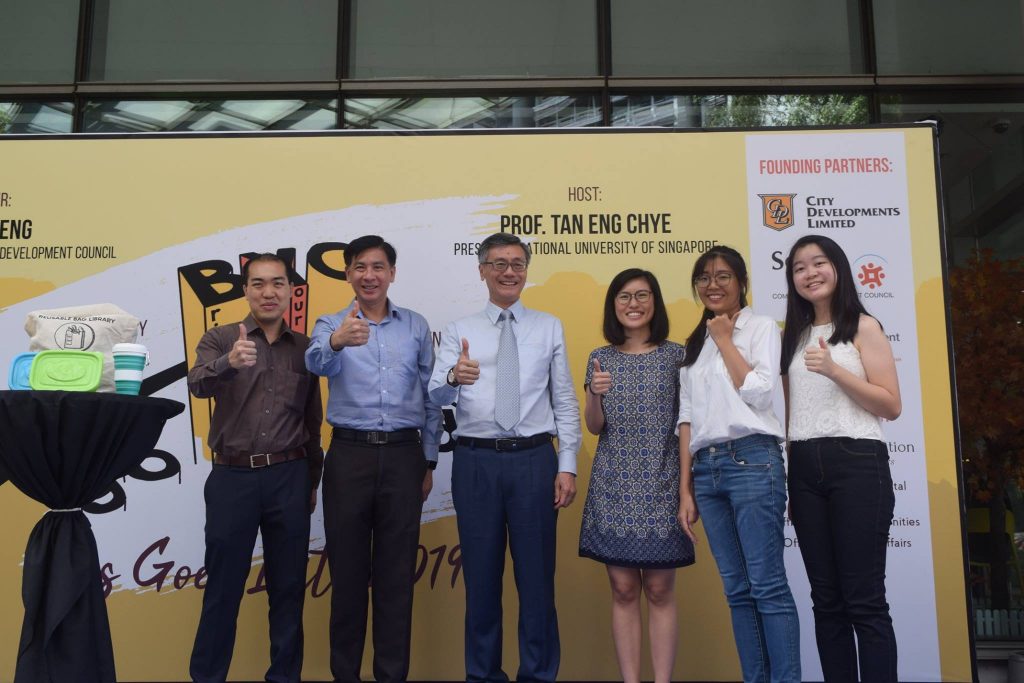
NUS Goes Lite Carnival 2019, organised by NUS Students Against Violation of the Earth (SAVE), took place in February 2019. The theme for the year was Go BYOnd! The meaning behind the pun, to go beyond BYO (Bring Your Own), involved getting students to not only incorporate basic BYO habits e.g. bringing their own lunch boxes or straws, but also to think about how they can reduce their carbon footprint and environmental impact by cutting down on other types of disposables found in daily life. Through exhibits, talks and workshops, it aimed to empower individuals to reduce their use of disposables, rethink their consumption habits and be more actively involved in shaping action for sustainability and climate.
Planting 10,000 trees
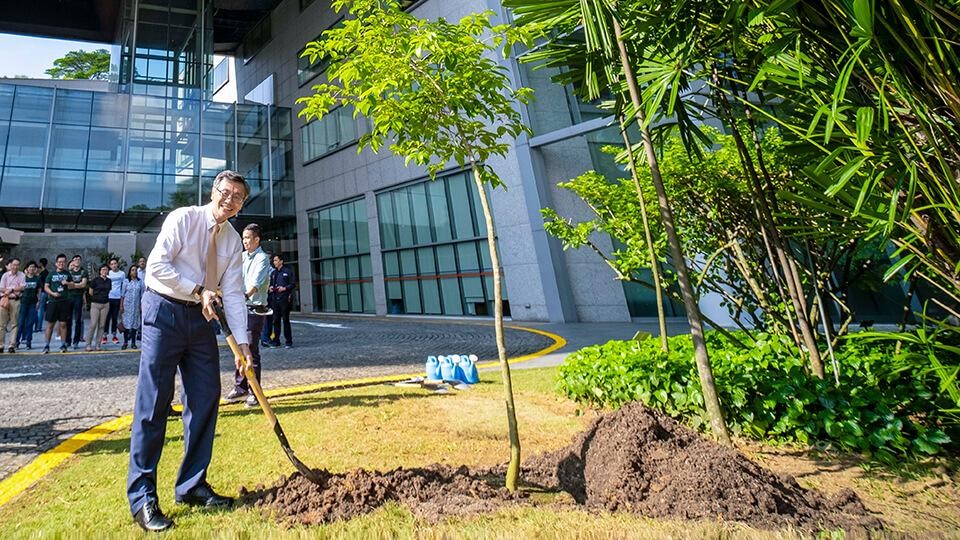
To preserve Singapore’s rich biodiversity, fight climate change and be an environmentally responsible campus, NUS President launched an initiative on 23 November 2018 to plant 10,000 native and common tree species throughout the campus.
Planting locations are identified using urban heat maps collected from thermal satellite images to mitigate the urban heat island effect. To protect the habitats of these trees, a strict NUS tree protection policy will be put in place. The trees are expected to cool down surrounding temperatures by about one degree Celsius, as well as contribute to the sequestration of 220 tonnes of carbon dioxide and the production of nearly 1,200 tonnes of oxygen annually.
More information about this initiative can be found here.
